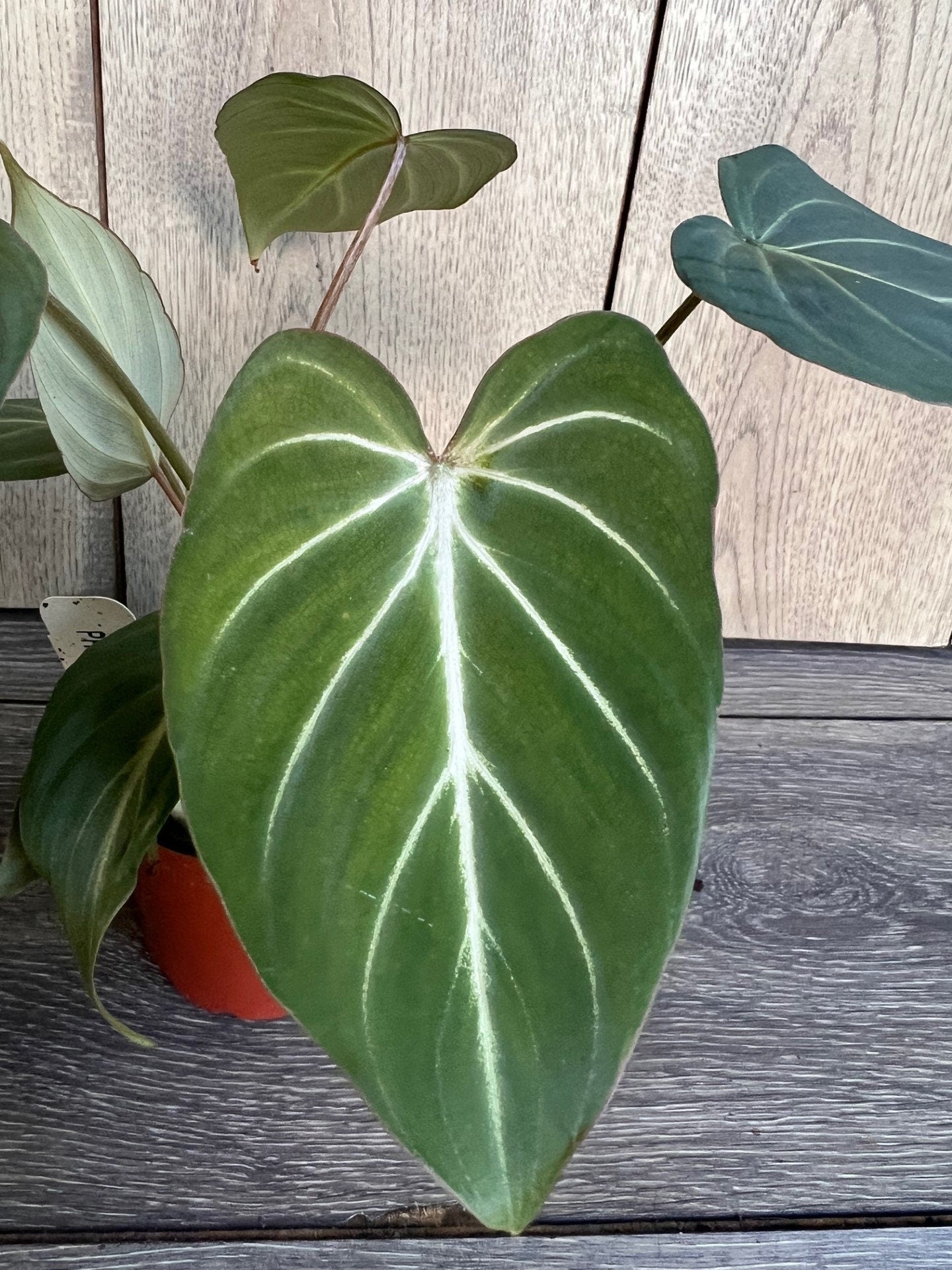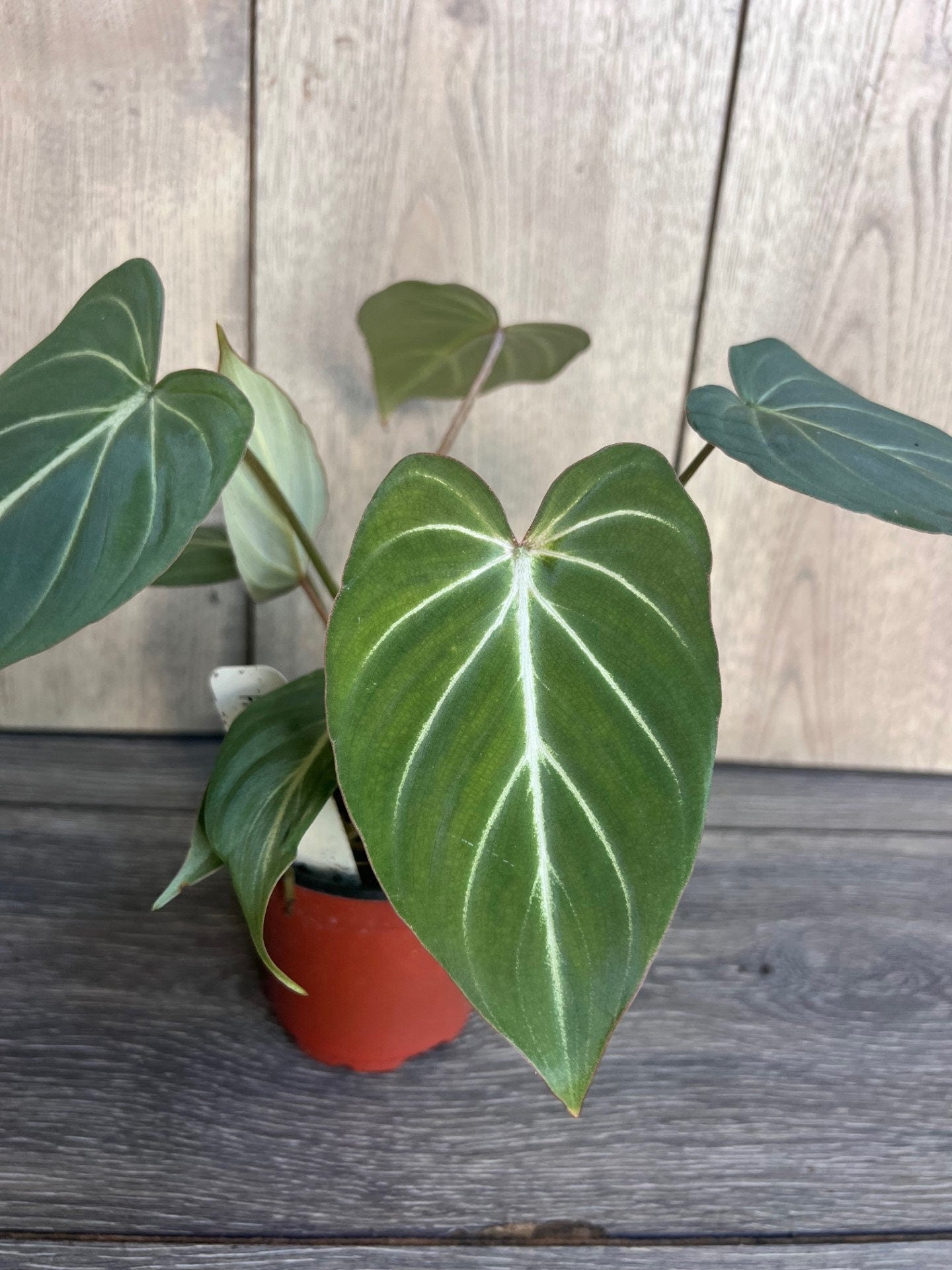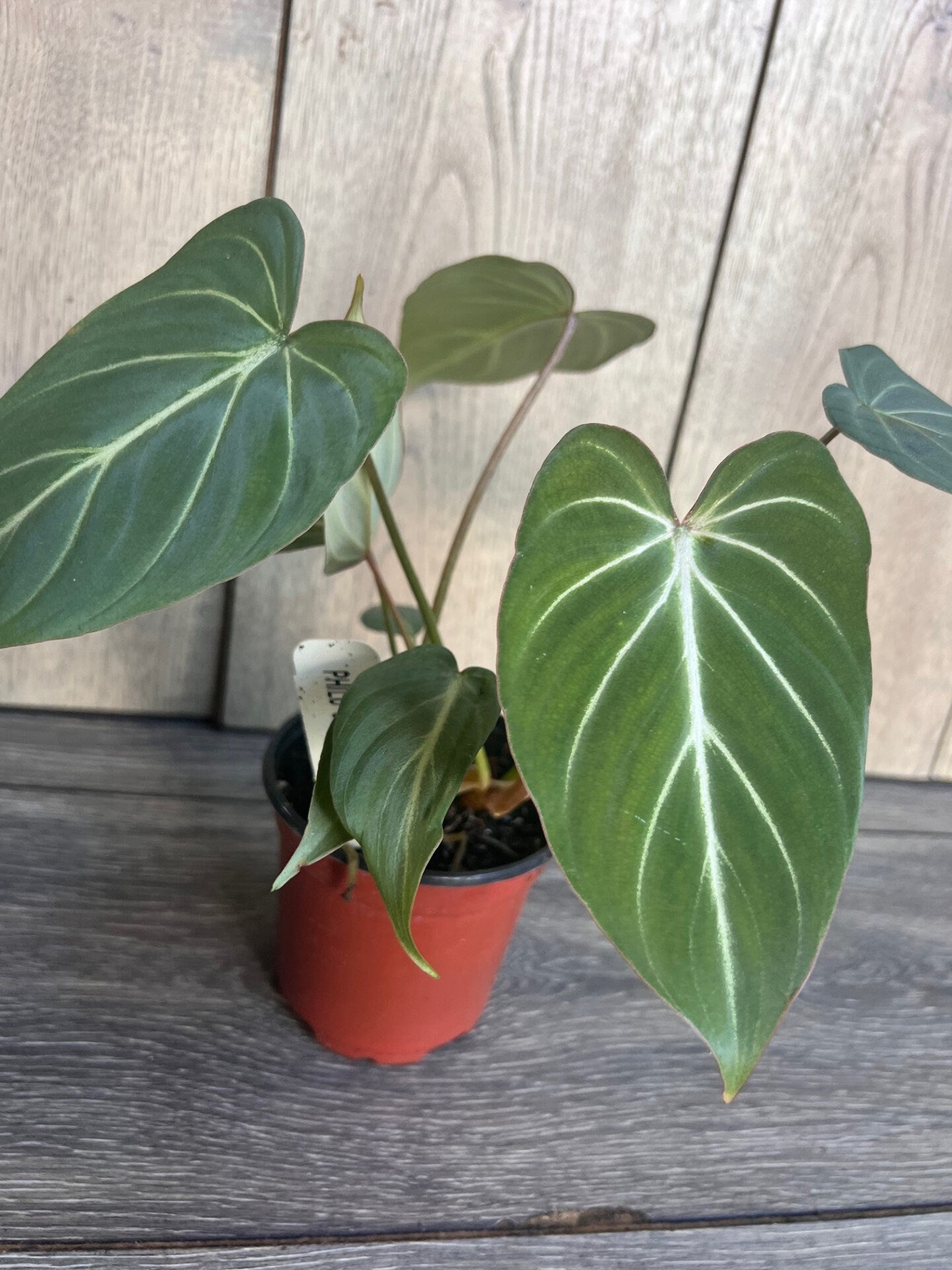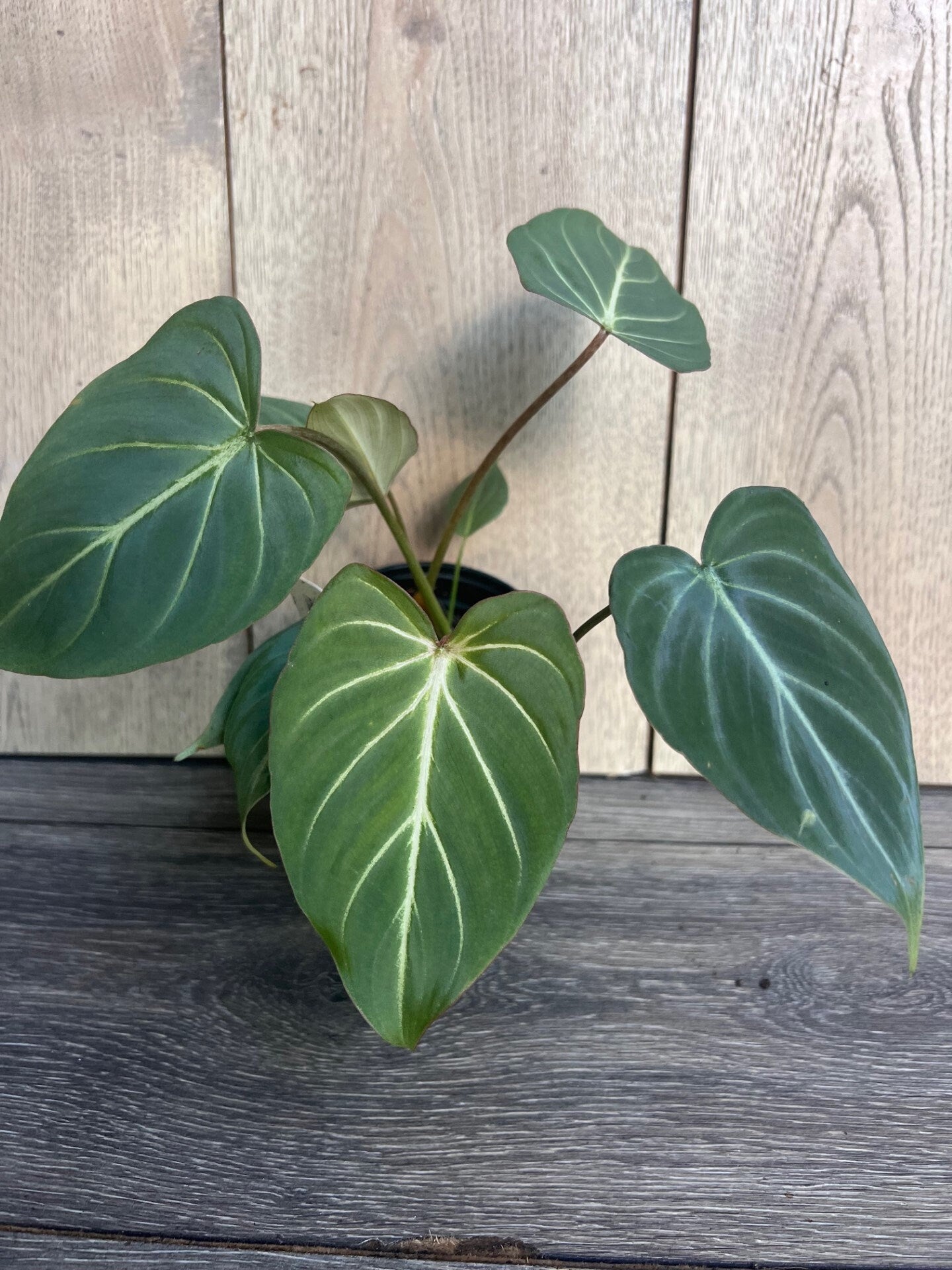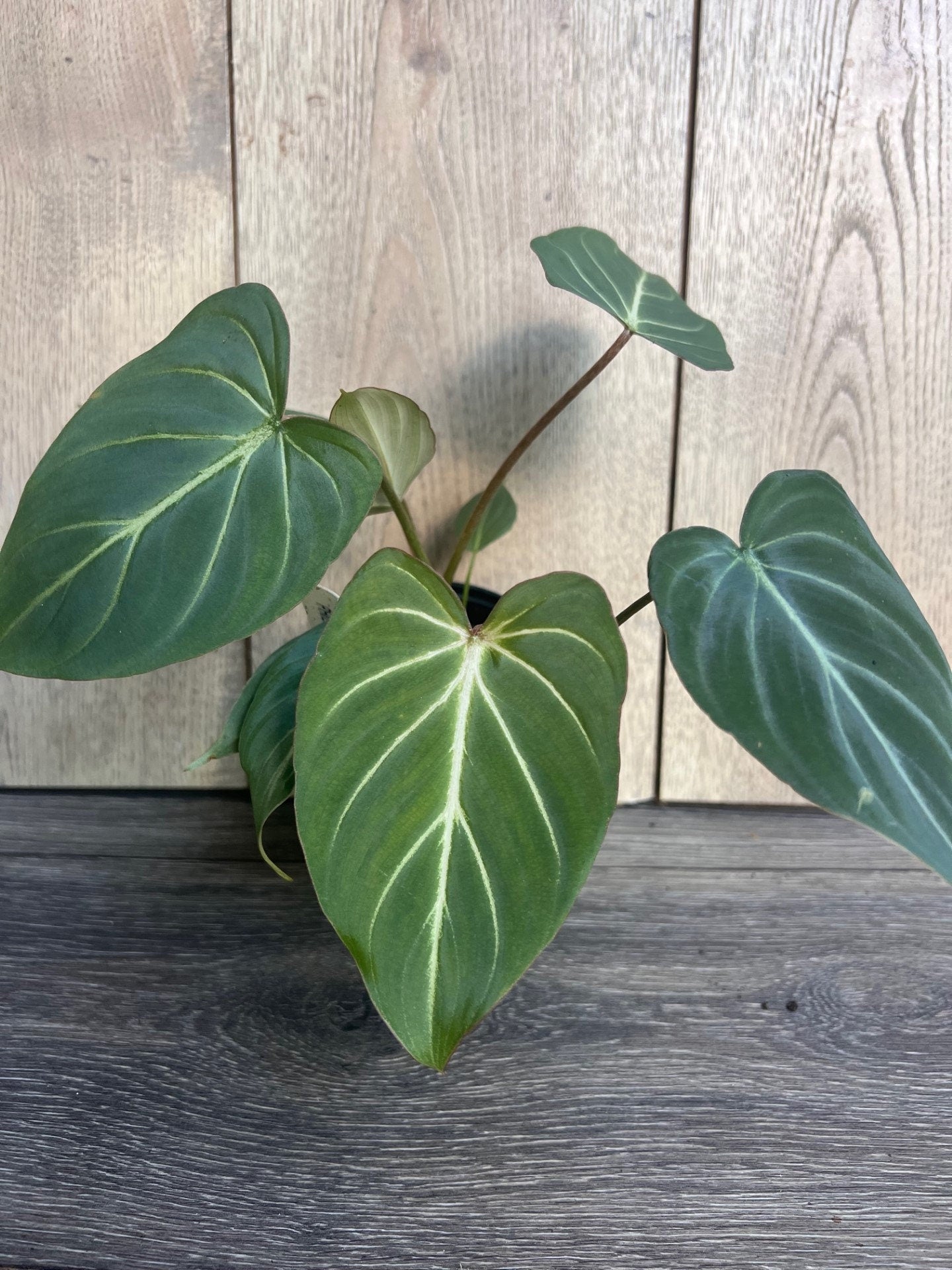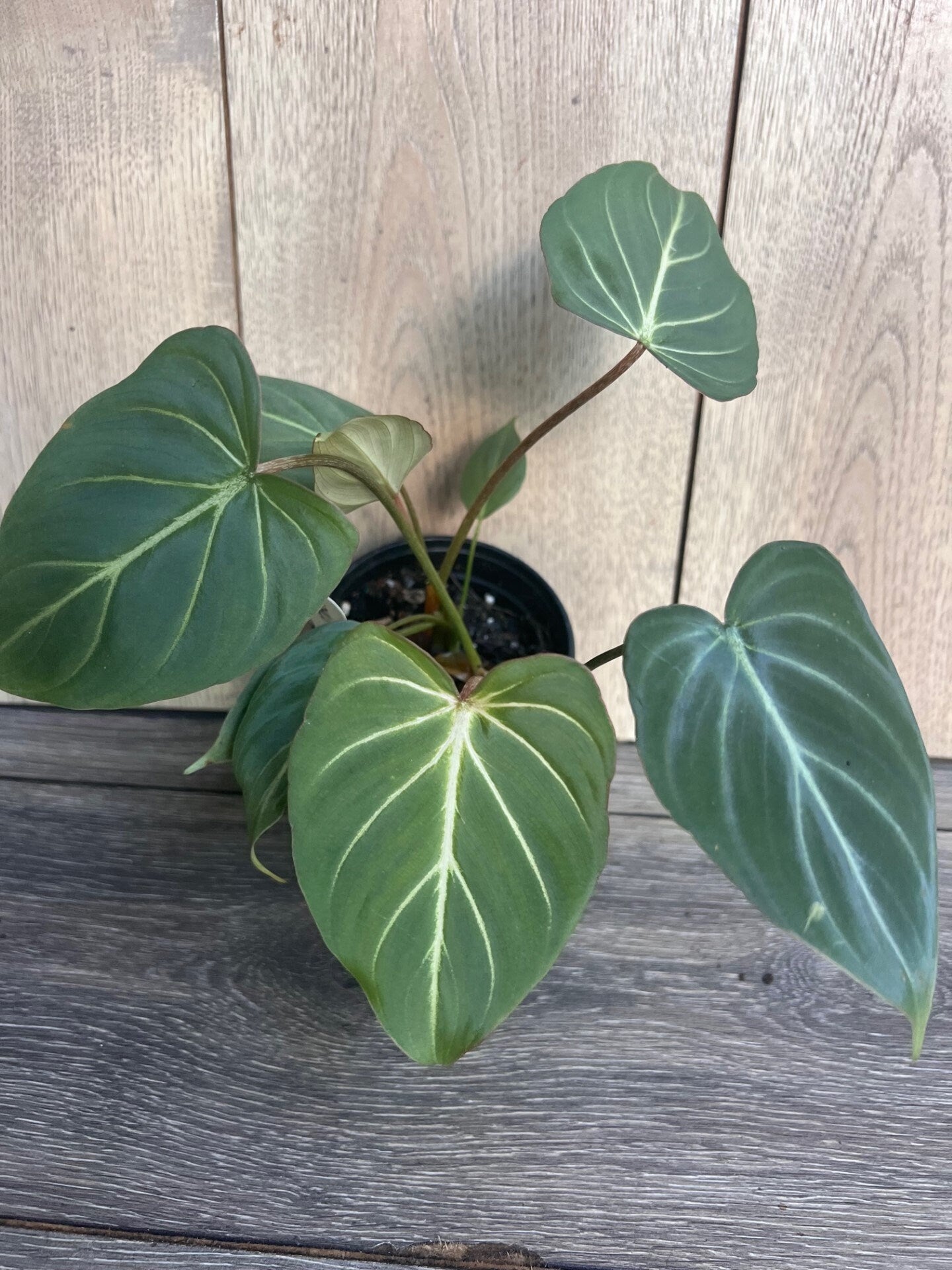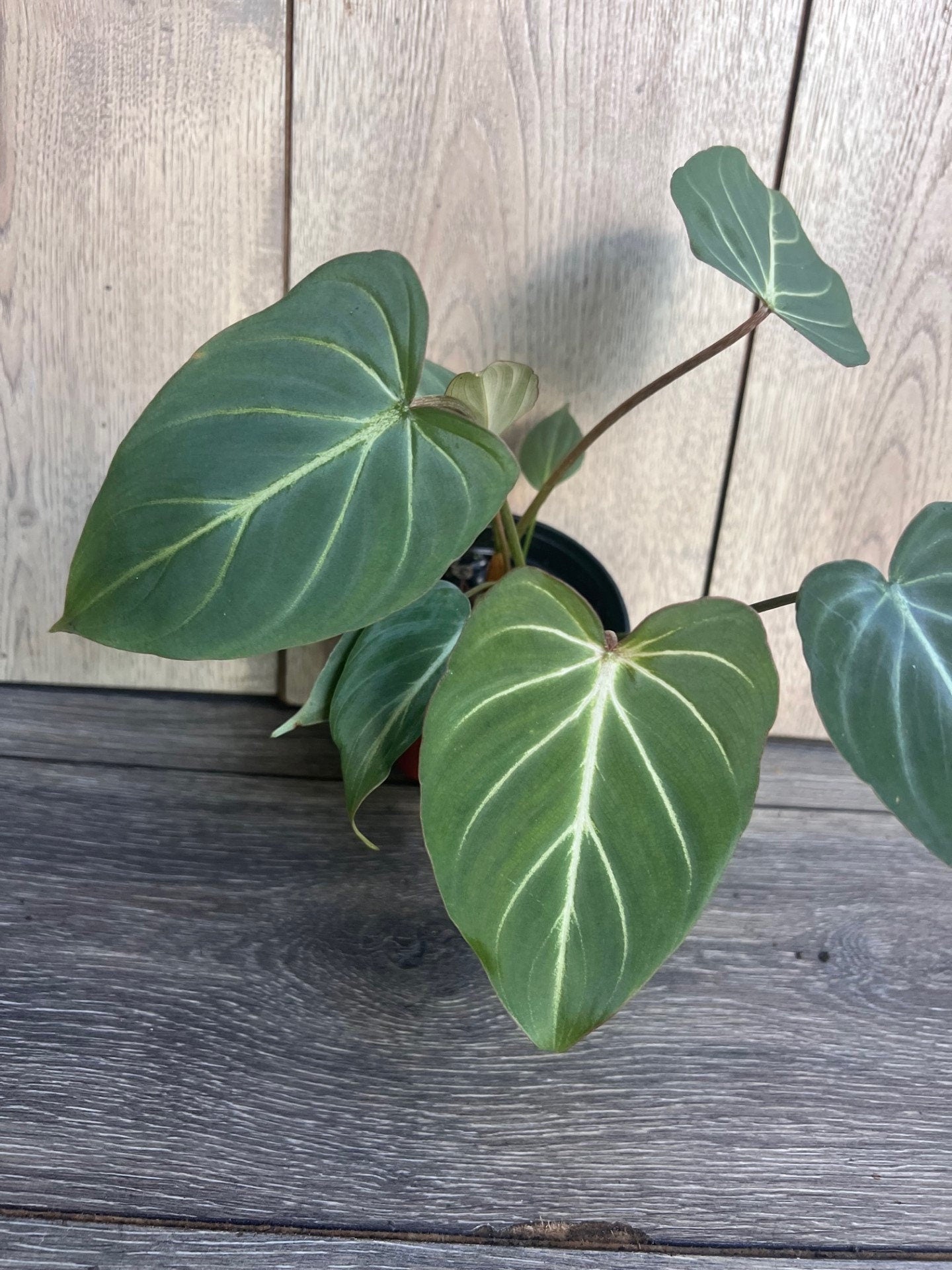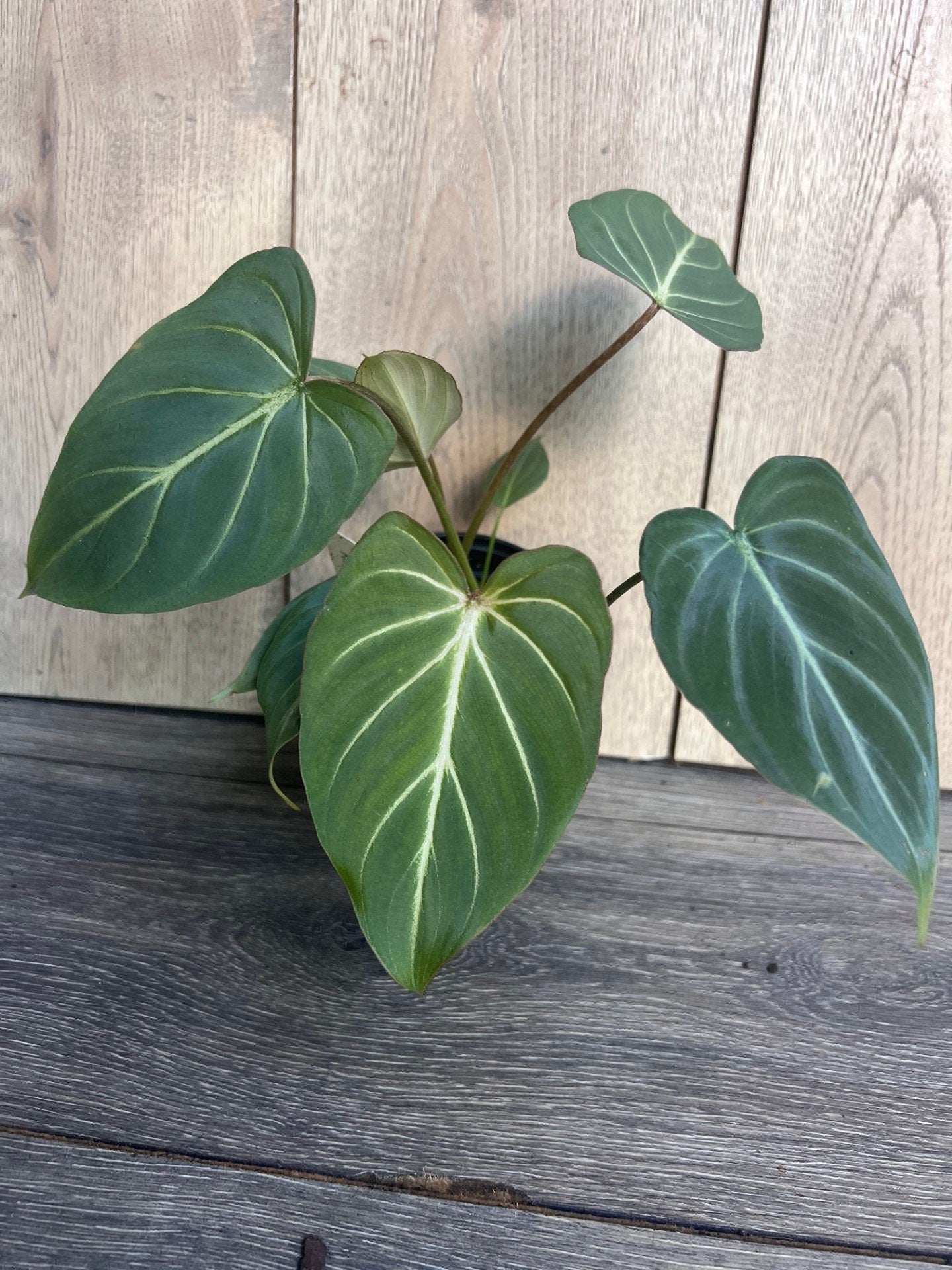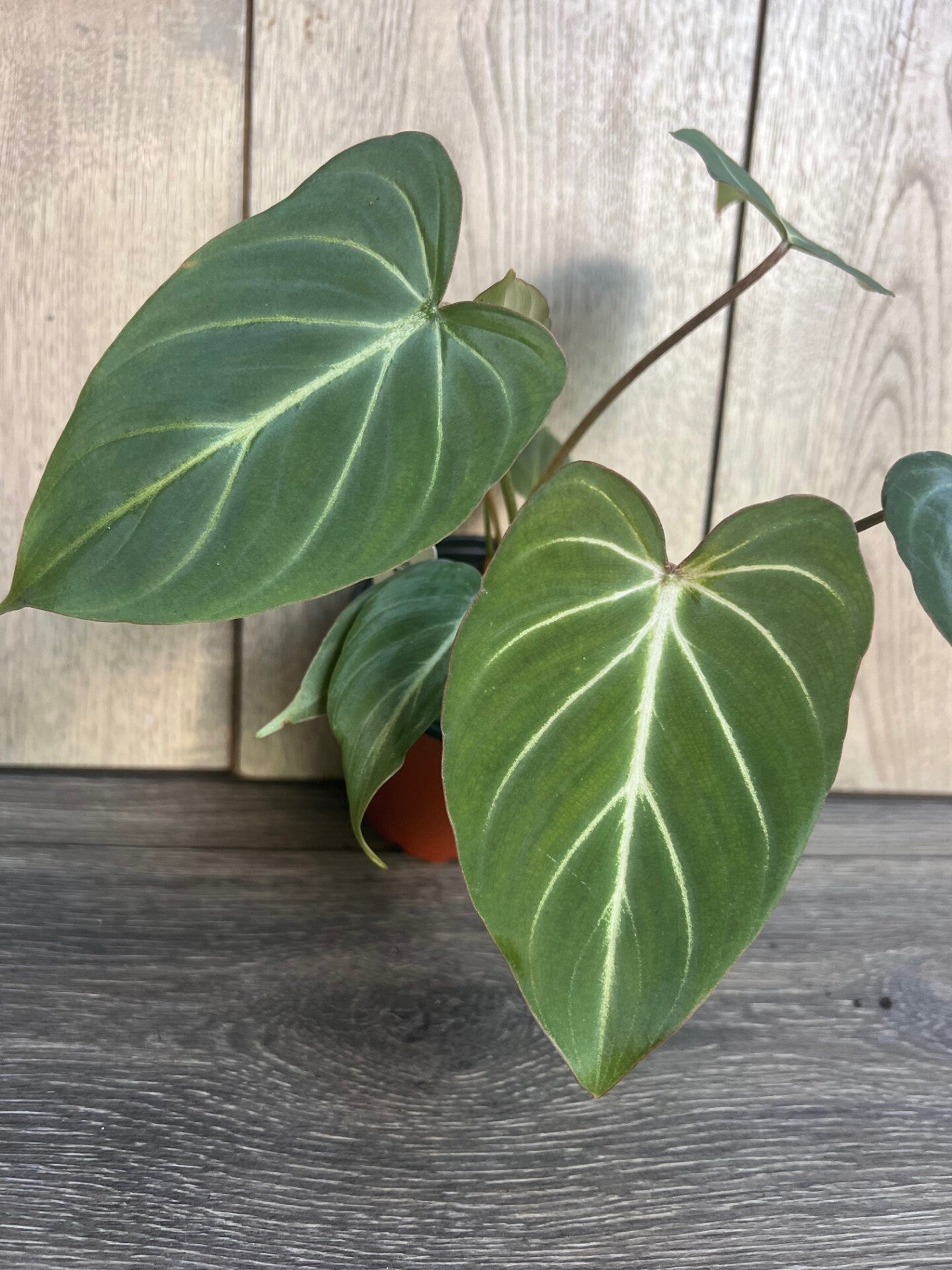Philodendron gloriosum in 4" pot,
Philodendron gloriosum in 4" pot,
Couldn't load pickup availability
Philodendron Gloriosum Care Guide
You will receive 1 Philodendron Gloriosum in a 4" pot, similar to the pictures.
Philodendron gloriosum is a striking, large-leaved species native to Colombia, known for its bold, heart-shaped foliage with white veins. It's a slow-growing, creeping plant that thrives in warm, humid conditions and bright, indirect light. This plant is a showstopper with its velvety, dark green leaves and can grow large over time.
1. Light
- Bright, Indirect Light: Prefers bright, indirect light. Direct sunlight can scorch its delicate leaves.
- Avoid Low Light: It can tolerate lower light but may grow slowly and lose vibrancy.
2. Watering
- Consistent Moisture: Water when the top 1-2 inches of soil feel dry. Keep it moist, but not soggy. Ensure the pot has drainage to avoid root rot.
- Increased Humidity: Thrives in high humidity. Consider misting, using a humidity tray, or a humidifier if air is dry.
3. Soil
- Well-Draining Soil: Use a loose, well-draining soil mix. Amend with perlite, orchid bark, or coconut coir for better airflow and moisture retention.
- Slightly Acidic pH: Prefers slightly acidic soil with a pH of 5.5-6.5.
4. Temperature
- Warm Temperatures: Ideal between 65°F and 80°F (18°C–27°C). Avoid temperatures below 50°F (10°C), as it’s sensitive to cold.
- Steady Temps: Avoid sudden temperature fluctuations.
5. Humidity
- High Humidity: Thrives in 60%+ humidity. Dry air can cause brown tips and slower growth. Increase humidity with a humidifier or misting.
6. Fertilizing
- Growing Season: Feed with a balanced, water-soluble fertilizer during spring and summer every 4-6 weeks.
- Avoid Over-Fertilizing: Cut back in fall and winter when the plant slows its growth.
7. Pruning
- Light Pruning: Prune yellow or damaged leaves to keep it tidy. Cut back leggy vines to encourage bushier growth.
- Support for Climbing: Can be trained to climb with a moss pole or trellis.
8. Repotting
- Repot Every 1-2 Years: Repot when the plant outgrows its pot or becomes root-bound. Choose a pot 1-2 inches larger than the current one with fresh soil.
- Signs of Root Bound: Slow growth or roots coming out of the drainage holes indicate it’s time to repot.
9. Pests and Diseases
- Common Pests: Watch for mealybugs, spider mites, and aphids. Treat with neem oil or insecticidal soap.
- Diseases: Overwatering can cause root rot. Ensure good drainage and avoid letting the plant sit in water.
10. Signs of Stress
- Yellowing Leaves: Often due to overwatering or poor drainage. Check soil moisture and drainage.
- Brown Leaf Tips: Typically caused by dry air or underwatering. Increase humidity or adjust watering.
- Leggy Growth: Caused by insufficient light. Move the plant to a brighter location.
11. Propagation
- Stem Cuttings: Propagate by cutting below a node and placing the stem in water or well-draining soil. Once roots form, transplant into a new pot.
By following these care guidelines, your Philodendron gloriosum will thrive and grow into a stunning specimen. Its lush, heart-shaped leaves and white veins will add a striking touch to any indoor space. Whether you let it trail, climb, or keep it compact, this plant is sure to be a favorite!
Share
